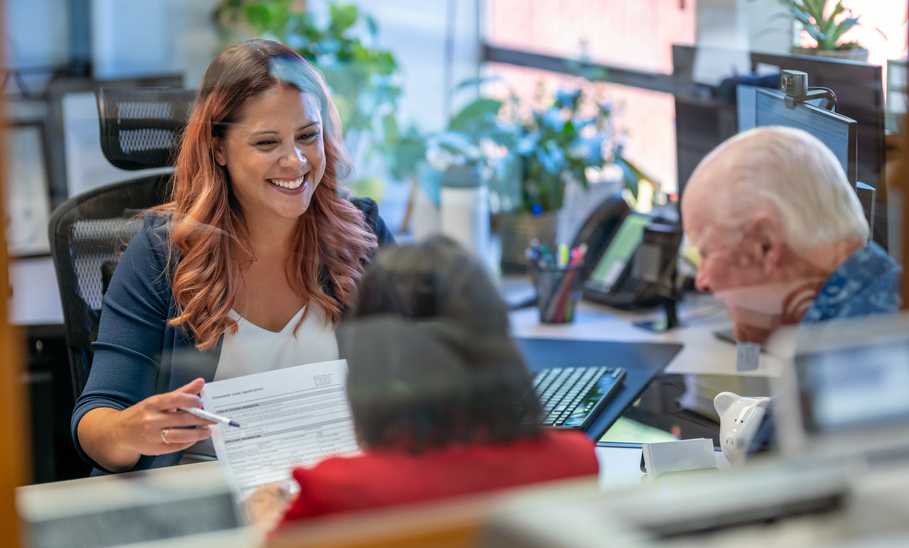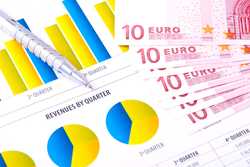How to Open a Bank Account as a Non U.S. Citizen: Requirements and Documentation

Our evaluations and opinions are not influenced by our advertising relationships, but we may earn a commission from our partners’ links. This content is created by TIME Stamped, under TIME’s direction and produced in accordance with TIME’s editorial guidelines and overseen by TIME’s editorial staff. Learn more about it.
Having a bank account makes life easier in all kinds of ways, whether you need to make regular deposits or withdrawals or want an account you can use to pay bills. A bank account also makes it considerably easier to save money for a rainy day or for the future, and all while earning interest on your deposits and protecting your money.
If you're not a U.S. citizen, you may believe you are barred from opening an account with a U.S. financial institution. However, this is not the case at all. You absolutely have the right to open an account provided you can prove, with supporting documentation, your identity and where you live.
While you don't have to be a U.S. citizen to open a bank account with a range of U.S. financial institutions, you do have to be able to prove who you are and where you live. This is true for anyone who wants to open a bank account, not just non-citizens.
In fact, Section 326 of the USA-PATRIOT Act requires banks, thrifts and credit unions to identify a customer who opens an account. Financial institutions are also required to establish a "Customer Identification Program" (CIP) as part of their Bank Secrecy Act compliance procedures, according to the FDIC.
Requirements to open a bank account include being at least 18 years of age (in most cases) and providing the following:
The alternatives you can use for identification as a non-resident of the U.S. vary from one bank to the next, along with other requirements. For example, some banks only require U.S. citizens to apply for a bank account with an ITIN if they were issued one, whereas others won't let you open an account without one.
If you're a non-citizen hoping to open a bank account, it can help to compare banks and their requirements to get started. As an example, Chase Bank lists the following forms of identification that can help anyone (including citizens and non-citizens) open a bank account:
Bank of America is even more specific when it comes to the identification non-citizens need to open one of their accounts. The institution says applicants will need two forms of identification from the following lists:
If you don't have the documentation required to open a U.S. bank account or you decide not to, you can still manage your finances and pay bills. You'll just have to do so with one of the following alternatives:
Some banks and credit unions advertise the fact that they accept alternative IDs to open an account. Others may also permit this if you inquire.
Here are some (but not all) of the banks and credit unions that make it easier to open an account as a non-citizen:
| Bank or credit union | Requirements |
|---|---|
Alliant Credit Union | No residency requirements, but non-expired ITIN is required |
Axos Bank | Varies |
Bank of America | Must be living in the U.S. |
Chime | Permanent residency required |
First Citizens Bank | Permanent residency required |
Live Oak Bank | Permanent residency required |
Revolut | Must be living in the U.S. |
Sofi | Must be living in the U.S. and have an SSN |
Wells Fargo | Must be living in the U.S. |
Why should non-citizens (and everyone else) have their own bank account? While Federal Reserve data shows 6% of adults were "unbanked" without an account of their own in 2022, there are numerous benefits that come with using a traditional bank or credit union over alternative banking options.
Most banking alternatives come with considerable fees that can make them expensive to use. If you opt for prepaid debit cards over a traditional bank account, for example, you may get stuck paying fees for every transaction, fees to check your balance, and even more fees for every withdrawal you make.
Having a bank account positions you to learn financial habits that can benefit you in the future. For example, you'll learn how to monitor purchases and keep track of the balances you have over time.
A bank account with a traditional bank or credit union can help you build a financial history that can benefit you if you ever need to apply for a loan or access other financial products.
Banks offer Federal Deposit Insurance Corporation (FDIC) insurance on balances up to $250,000 per depositor, and credit unions offer similar coverage from the National Credit Union Association (NCUA). This means you won't lose funds, up to the $250,000 cap, if the bank fails or has a financial crisis.
Having a checking account typically means a free debit card is included. This makes it easier to shop for purchases online or when you're out and about. You may also be able to withdraw money without any fees from the ATM network through which your bank operates.
Having a bank account means you can have your paycheck directly deposited into your account, often faster than you would get it otherwise. For example, many checking accounts promise you'll get paid a few days sooner with direct deposit.
Most traditional bank accounts offer online bill pay that makes it easy to set up bills for payment without writing checks or delivering the money. This can save you time and help you stay on top of your finances.
If you have heard that non-citizens can't get a U.S. bank account, we hope we've proved that this isn't the case. Non-U.S. citizens, including permanent residents and international students, can get a bank account with major financial institutions if they reside in the U.S. and provide proper documentation.
Taking the steps to open an account as a non-citizen will definitely be worth it due to the benefits that come with having a bank account to pay bills and grow savings. The choice is yours when it comes to which bank to use.
Requirements to open an international bank account vary. For example, you'll typically need to provide information such as your employment, income and tax details, proof of identification, bank statements or utility bills to prove where you live and more.
You can likely open a U.S. bank account without an SSN if you meet other requirements, which may include the requirement to have an Individual Taxpayer Identification Number (ITIN) instead.
Some U.S. banks that don't require an SSN to open an account include Bank of America, Alliant Credit Union, Axos Bank. Revolut, a neobank that offers banking services, also doesn’t require one.
The information presented here is created by TIME Stamped and overseen by TIME editorial staff. To learn more, see our About Us page.



